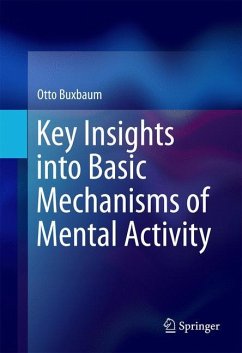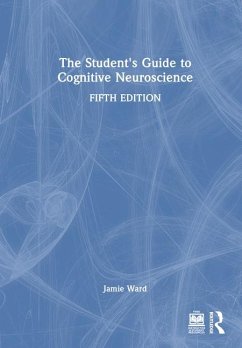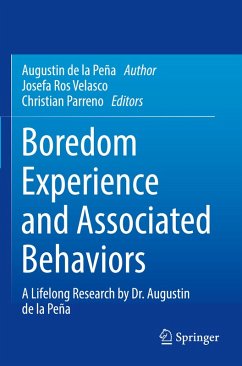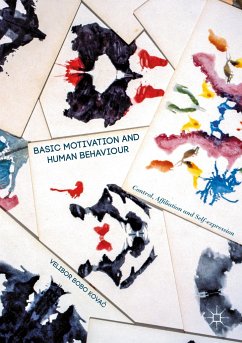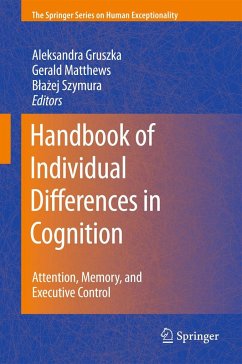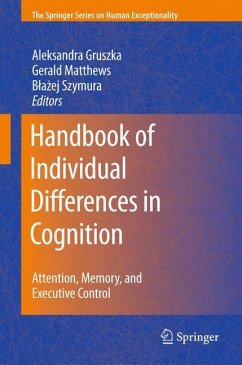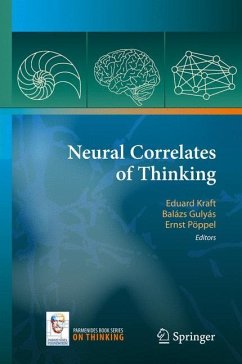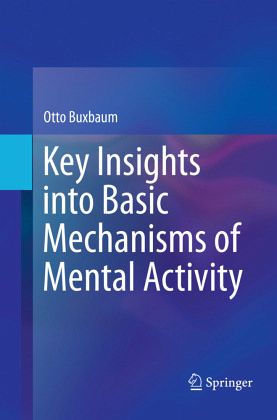
Key Insights into Basic Mechanisms of Mental Activity
Versandkostenfrei!
Versandfertig in 6-10 Tagen
38,99 €
inkl. MwSt.
Weitere Ausgaben:

PAYBACK Punkte
19 °P sammeln!
A more nuanced perspective on cognition, behavior,personality, and pathology.Mind/brain.It is explained that mental activity is not possible withoutconcepts/memory structures that exist in the brain and result from perceptuallearning. Core mental activities including thinking, reasoning, and judgmentare described as components of self-regulation and in terms of interactingneural systems.This framework also leads to a more specific and lessstigmatizing system for classifying and diagnosing mental illnesses.This concise volume: Introduces the S-O-R (stimulus-organism-response) model of mental a...
A more nuanced perspective on cognition, behavior,personality, and pathology.
Mind/brain.
It is explained that mental activity is not possible withoutconcepts/memory structures that exist in the brain and result from perceptuallearning. Core mental activities including thinking, reasoning, and judgmentare described as components of self-regulation and in terms of interactingneural systems.
This framework also leads to a more specific and lessstigmatizing system for classifying and diagnosing mental illnesses.
This concise volume:
Introduces the S-O-R (stimulus-organism-response) model of mental activity. Recasts mental processes as neuro-mental processes. Provides empirical evidence for the neural basis for judgments. Addresses ongoing mind/brain questions such as whether thinking is unconscious.
Key Insights into Basic of Mental Activity will interest scientists doingresearch in psychology, psychiatry, psychotherapy, human biology/anthropology,linguistics, and neuroscience. Professors, lecturers, and instructors will findit important as a class text in these fields. And the book's clinicalimplications make it useful to practitioners of psychology, psychiatry, andpsychotherapy.
Mind/brain.
It is explained that mental activity is not possible withoutconcepts/memory structures that exist in the brain and result from perceptuallearning. Core mental activities including thinking, reasoning, and judgmentare described as components of self-regulation and in terms of interactingneural systems.
This framework also leads to a more specific and lessstigmatizing system for classifying and diagnosing mental illnesses.
This concise volume:
Introduces the S-O-R (stimulus-organism-response) model of mental activity. Recasts mental processes as neuro-mental processes. Provides empirical evidence for the neural basis for judgments. Addresses ongoing mind/brain questions such as whether thinking is unconscious.
Key Insights into Basic of Mental Activity will interest scientists doingresearch in psychology, psychiatry, psychotherapy, human biology/anthropology,linguistics, and neuroscience. Professors, lecturers, and instructors will findit important as a class text in these fields. And the book's clinicalimplications make it useful to practitioners of psychology, psychiatry, andpsychotherapy.



